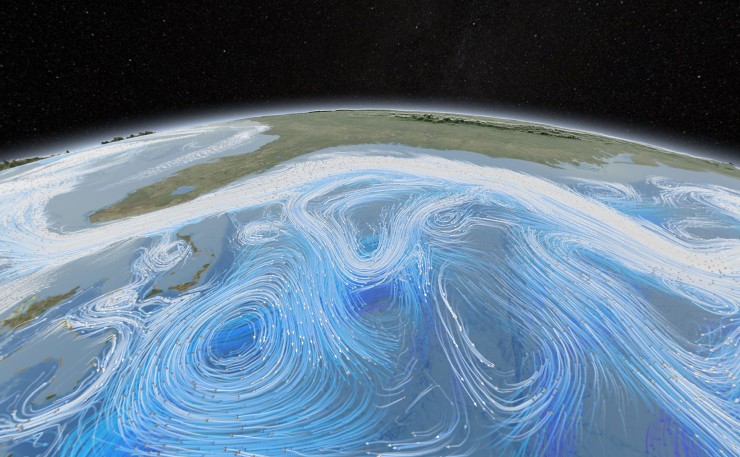The draft Garnaut report is good as far as it goes, but it’s based on old science and the thinking is still old paradigm. The challenge is both more urgent and less difficult economically than Professor Garnaut portrays it.
It’s good that Garnaut stresses the need to act, and the need for an emissions trading scheme to cover all emissions, including petrol. His blunt language will make some impression on the populace, even if it doesn’t have much effect on a Government that has already backed away from his approach. We should remember though that the draft report made headlines as much because of high petrol prices as because of a widespread desire to get serious about global warming.
Unfortunately, global warming has progressed rapidly in the past few years, and the science upon which Garnaut relies is out of date. The symptom of most concern is the rapid decline of the summer Arctic sea ice, which could reduce to near zero within a few years, a century ahead of previous projections.
That news is worrying on its own, but the biggest concern now is that major climate dominos may begin to fall in unstoppable succession. The Arctic Ocean absorbs more solar heat when it’s ice-free than when it’s ice-covered, and that accelerates global warming. As polar warming accelerates, permafrost melting threatens to release huge amounts of carbon dioxide and methane, which could render climate change unstoppable.
If you’ve got a hammer you see nails everywhere, and if you’re an economist you talk about growth. Garnaut and the Treasury will use elaborate computer models to compare projected growth rates under alternative policy options, looking for the emission-reduction policies that slow growth the least.
But growth has become the fundamental problem. We in the developed world have already achieved sufficient material productivity to keep everyone in a comfortable and dignified lifestyle. Our poverty problem is a social and political problem of fair distribution, not an economic problem of production.
Not only is our material production system more than sufficient, it is extremely wasteful, and by now we use four or five times our share of the Earth’s carrying capacity. People are still seeing one problem at a time – global warming, peak oil, water shortages, declining forests, and all the rest – without seeing, or admitting, that these problems are all part of a bigger problem: we are at Peak Earth.
It is because of Peak Earth that the rush to produce biofuels is causing food shortages. It is because of Peak Earth that production of food and biofuels is causing water shortages and destroying forests.
Growth is the problem, and it cannot be part of the solution. We need to move our thinking into a new paradigm. The outline of this new paradigm is already well developed, it’s just that most people can’t see it through their old-paradigm blinkers.
In the new paradigm, we must move as rapidly as possible into an efficient and sufficient material economy. We will focus on quality of life instead of ever-more stuff. The economy will serve society, instead of the other way around. Markets will be managed so as to propel us into the new mode.
One of the quickest and cheapest ways to reduce greenhouse gas emissions is to make our buildings, factories, cities and vehicles more energy efficient. There are now many examples and studies showing not only that it’s possible, but that many of the efficiencies would save us money.
We can also move to recycling materials, not just once but indefinitely. Already Germany requires 90 per cent of its car components to be returned to manufacturers for re-use or re-manufacture, and German cars have been redesigned to facilitate recycling.
If we follow this path, then nuclear power will be quite unnecessary. Coal, the export of which amounts to only 2 per cent of the Australian economy, can be phased out. As efficiency improves, renewable energies will become sufficient (claims that they must remain minor and unreliable are disinformation). Similarly, efficiency is the only path that will control household energy bills.
The hardest part of making these changes will be breaking away from old habits. We already do many the things that are required – just not comprehensively. There will be some winners and losers, but we’ve had three decades experience of that already, under the myopic and misguided “free” market regime.
As we develop, we can teach China and India to pursue this more rewarding and durable approach. We can stop behaving like a locust plague on the face of the Earth, and transform our economies so that we are good denizens of the biosphere upon which our lives depend totally.
Donate To New Matilda
New Matilda is a small, independent media outlet. We survive through reader contributions, and never losing a lawsuit. If you got something from this article, giving something back helps us to continue speaking truth to power. Every little bit counts.




